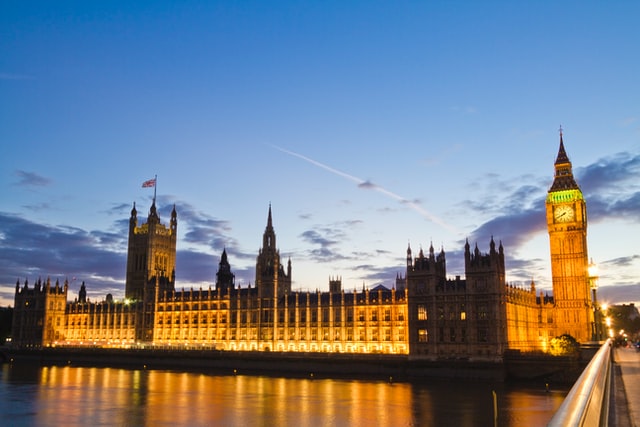From 4th May 2021 the Government Debt Respite (Breathing Space Moratorium and Mental Health Crisis Moratorium) (England and Wales) Regulations 2020 shall come into effect, giving certain debtors protection from enforcement action through the introduction of a short-term moratorium which comes in two forms; the “Breathing Space Moratorium” and the “Mental Health Crisis Moratorium”.
How will debtors be protected by the new regulation?
A key feature of the legislation is the introduction of a 60-day “Breathing Space Moratorium” for people with problem debts who receive professional debt advice. Once active, the new moratorium gives a period where interest, fees and charges are frozen and enforcement action is temporarily suspended.
This protection is accessible only through professional debt advice providers. The debtor must be an individual owing a qualifying debt to a creditor and must also be domiciled or ordinarily resident in England or Wales. The individual applying for the scheme cannot be subject to a debt relief order, nor an interim order or individual voluntary arrangement. The conditions must be met that; (a) the debtor is unable, or is unlikely to be able, to repay some or all of their debt as it falls due, and (b) a breathing space moratorium would be appropriate.
The second type of protection afforded by the new Regulations is the “Mental Health Crisis Moratorium”. Those eligible will be able to enter a Mental Health Crisis Moratorium without engaging with debt advice. Instead Approved Mental Health Professionals will have the ability to produce an assessment to evidence that a debtor is receiving mental health crisis treatment.
Whereas the Breathing Space Moratorium has a 60-day period of effectiveness, the Mental Health Crisis Moratorium operates for the duration of the debtor’s mental health crisis treatment, plus an additional 30 days once the treatment has been concluded.
There is the possibility for debtors to access the Breathing Space Moratorium once their existing Mental Health Crisis Moratorium has been brought to an end. There will be no limit on the number of times that people receiving mental health crisis treatment may enter a moratorium via this mechanism, whereas debtors protected by the 60-day Breathing Space Moratorium will only have access once every 12-month period.
Which debts are covered by the new moratoria?
All of a person’s debts can be included in a Breathing Space Moratorium, unless it is a “non-eligible debt”, which is defined in Regulation 5(4).
Debts arising through family proceedings are “non-eligible”. Although secured debts are considered to be “non-eligible”, arrears in respect of the secured debt are expressly deemed “eligible”.
How will this impact Creditors?
As outlined above, creditors will not be able to take any enforcement action relating to sums owed whilst a Breathing Space or Mental Health Crisis Moratorium is active. This includes an inability to charge and interest, penalties, or fees relating to such sums.
A small silver lining for creditors is that debtors under the protection of a Breathing Space or Mental Health Crisis Moratorium are still obligated to meet any future payments as they fall due – protection does not extend to ongoing liabilities. Accordingly, a failure by the debtor to meet any ongoing liabilities during the moratorium period will enable a debt advice provider to exercise their discretionary power to cancel the moratorium.
There are also provisions within the Breathing Space Moratorium Regulations for a “midway review”, at which point the debt adviser involved must review the moratorium and conclude whether it should remain effective for the remainder of the 60-day period, or whether it should be brought to an end.
As far as present proceedings are concerned, once notified by the debtor that a moratorium is in place, Courts and Tribunals are obliged to do all they can to ensure that proceedings concerning a moratorium debt do not proceed until after the moratorium has expired.
How will this specifically impact Landlords?
Landlords will certainly be impacted by the new Regulations, as they will be unable to bring claims for rent arrear against any tenants who have secured protection under either of the new moratoria.
Landlords will also be prevented from issuing a notice under Section 8 of the Housing Act 1988 if rent arrears are cited as the grounds for such a notice (grounds 8, 10 and 11).
Landlords are, however, still permitted to issue notices under Section 21 of the Housing Act 1988 and also under Section 8 where grounds other than rental arrears are cited.
What next?
Once the legislation comes in to effect on 4th May 2021, creditors should ensure that they are not only proactively seeking to assess which potential debtors could be eligible for such moratoria and when such eligibility may arise, but should also seek to implement efficient processes allowing for the identification of debtors who have successfully obtained protection under the Government Debt Respite (Breathing Space Moratorium and Mental Health Crisis Moratorium) (England and Wales) Regulations 2020.
Debtors struggling to cope with existing debts or arrears should check their eligibility for protection under the new Regulations. Such protection could be of huge value to debtors who have fallen into debt largely as a result of cash flow issues stemming from the immediate impact of the COVID pandemic, but for whom some degree of financial stability could now be possible should they be afforded time to organise and prioritise their incomings and outgoings.
For more information on this or any other insolvency and restructuring matters, contact us.

